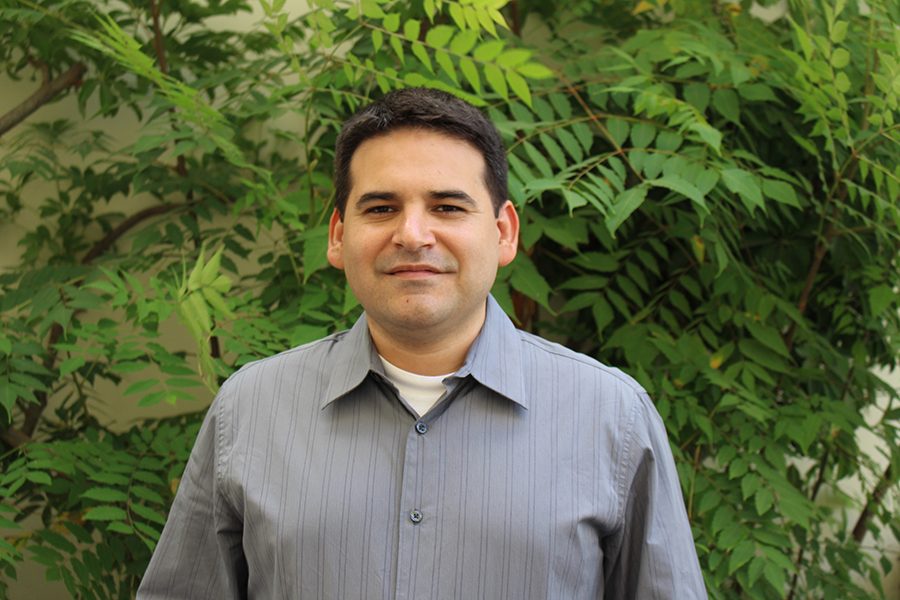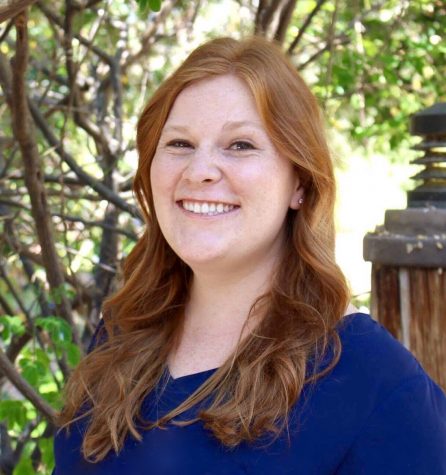Being one of the top research universities in the country, San Diego State dedicates its faculty and staff to developing research programs to come up with innovative ways to contribute to our progressing world.
With the addition of its newest faculty member, assistant professor Joaquin Camacho, the mechanical engineering department intends to strengthen its research, university and community with his expertise.
While his love for California culture and mechanical engineering makes him a good fit for the department, Camacho is presented with the opportunity to develop his own research program while establishing himself as a professor and a department contributor.
His research goal is to provide solutions to the environmental challenges we face today he said.
Camacho said he hopes to revolutionize the way we make materials by developing a more sustainable process.
He also said he wants to utilize flames and high-temperature aerosols in nano-fabrication processes and to improve sustainable production in our industries.
“The goal is to improve industrial fabrication and ultimately make sustainable infrastructure and technology easier to accept and use for people,” Camacho said.
Camacho has his own website called Energy FANS Lab, where FANS stands for Flames, Aerosols and Nano-Science.
On the website, Camacho makes his research and publications available to the public.
One of the research topics that is discussed on the website includes an in-depth explanation on how flames and high-temperature processes are used to synthesize nano materials.
He wants to share his research approach with students who are interested in thermodynamics and to provide students his own mechanical engineering students.
“There’s no easy way,” Camacho said. “It just takes time. You have to dedicate yourself everyday and practice.”
The mechanical engineering program at the university is no cakewalk, so maintaining both passion and interest in the field is crucial.
Camacho received his bachelor’s at UC San Diego, his doctorate at University of Southern California and his post-doctoral training at Stanford University.
Right after graduating Stanford, Camacho came to SDSU where he said he hopes to advance his research and share his knowledge on thermal and fluid sciences to his students and the department.
“We are very excited to have Dr. Camacho join the mechanical engineering department,” Mechanical Engineering department chair John Abraham said. “His expertise includes flame synthesis of materials for various applications like batteries and ultra-capacitors, and aerosol formation and dispersion.
With the addition of Camacho to the mechanical engineering department, progress in research and learning is being made.
“The department has a growing and highly visible research program supported by significant levels of extramural funding,” Abraham said. “Mechanical engineering department faculty contributed the largest share of extramural funding in the College of Engineering last year, and have already attracted significant levels of funding in the current year to support pioneering research in emerging and traditional areas of mechanical engineering. The new hires to the department are expected to significantly increase the level of research activity.”
This semester, Camacho will be teaching one upper-division mechanical engineering course at the university.
The course covers the basic concepts and principles of thermodynamics in relation to compressible substances.
Camacho said he is currently recruiting students who share research interests in experimental, computational and theoretical projects having to do with nanoscience and renewable energy.
“With Camacho’s addition, the department expects to see a growing research program in these areas,” Abraham said. “Camacho adds strength to the thermal and fluid sciences teaching area in the department.”
With the construction of the new five-story engineering and interdisciplinary sciences complex currently underway, Camacho and his mechanical engineering students will soon have a new home to conduct their own research projects.
The complex is scheduled for completion in January 2018, but the innovation of the mechanical engineering department will continue.













